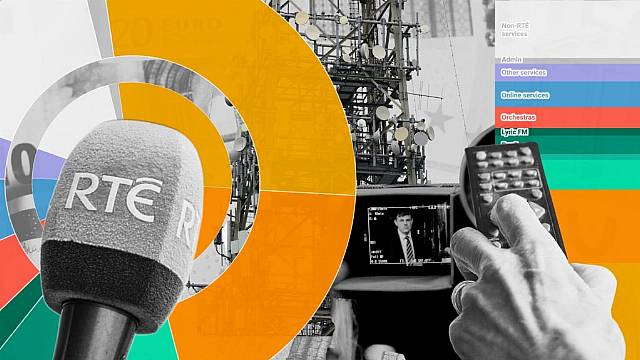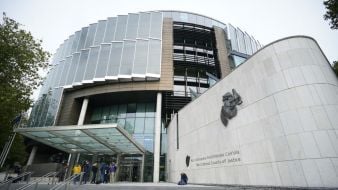The crisis at RTÉ over underdeclared payments to Ryan Tubridy has brought the future of the TV licence fee into sharp focus.
The public service broadcaster operates on a dual funding model, with 55 per cent of its income, just under €200 million a year, brought in through the licence fee.
Households with a television set must pay for a TV licence, which costs €160 a year.
However, new figures suggest that the fallout from the payments controversy at RTÉ is affecting licence fee income – revenue fell by almost €1 million over five weeks in June and July, compared with the same period in 2022.
So how does RTÉ use the money it gets and will the licence fee system survive the current crisis?
RTÉ's licence fee spend
The latest available annual figures show that RTÉ received €196.1 million income from the licence fee in 2021, down slightly from €196.6 million the previous year.
The broadcaster's own policy is to first use licence fee revenue for channels and services that have a "limited capacity to generate commercial revenue in their own right".
This includes services like RTÉ Orchestras, Raidió na Gaeltachta, Lyric FM, support to TG4, digital audio broadcast (DAB) channels and the costs of running its corporate headquarters.
RTÉ says the remaining licence fee it receives is shared between services with more "commercial revenue potential", including RTÉ One, RTÉ2, Radio 1, 2FM and online services.
Nonetheless, almost half of the fee goes to RTÉ's two flagship TV channels, with €45 of the €160 licence going to RTÉ One alone.
RTÉ2 gets the equivalent of €32 from every licence fee, Radio One receives €13, while 2FM costs each fee-payer about €2.50 every year.
About €20 million of licence fee income does not go to RTÉ and is instead used to pay An Post for the collection costs and to provide funding to the Broadcasting Authority of Ireland.
Taoiseach Leo Varadkar admitted in recent weeks that the licence fee is currently being collected in an inefficient or "wasteful" way.
Future of the licence fee
The licence fee system has come under criticism in recent years amid concerns about evasion and more homes accessing content online.
A report on the future of Irish media published last summer recommended that public service broadcasting is paid for directly out of taxation and that the licence fee is abolished.
At the time the Government welcomed the Future of Media Commission's findings, but proposed "an alternative approach to the commission’s recommendation on a new funding model".
RTÉ has long called for a change in the system. Even before the recent crisis former chair of the RTÉ Board Moya Doherty said the licence fee model was "fundamentally broken" and urged immediate reform.
"The present model is resulting in a loss to both public service media and the independent production sector of approximately €65m per year – over €500m in the last decade," she wrote in the 2021 annual report.
Licence fee evasion in Ireland is relatively high by European standards – 15 per cent in 2020 – and other countries are beginning to explore other ways of funding public media.
Denmark started a gradual move away from the licence fee in 2019 before completely abolishing it last year – the Nordic country now funds its public broadcaster directly from taxation.
So will Ireland scrap the licence fee? It seems that major change is on the way, but what form that takes is still unclear.
On Saturday the Irish Independent reported that the TV licence will not increase beyond €160 but is likely to be reformed into a "broadcasting charge" that will be collected from every household by Revenue.
The Taoiseach said last week he was "determined" to see through reform of the system before the next election.
"I believe this should be the Government, this should be the Dáil that deals with this issue once and for all," Mr Varadkar said. "Reform was put off in the past for lots of different reasons but it is now long overdue."







